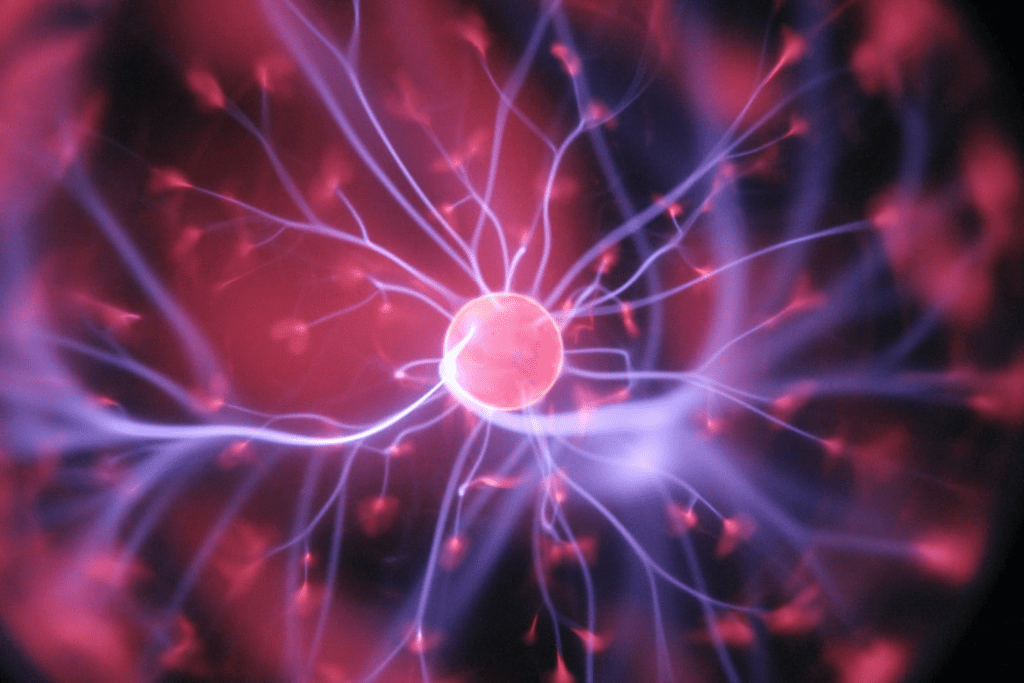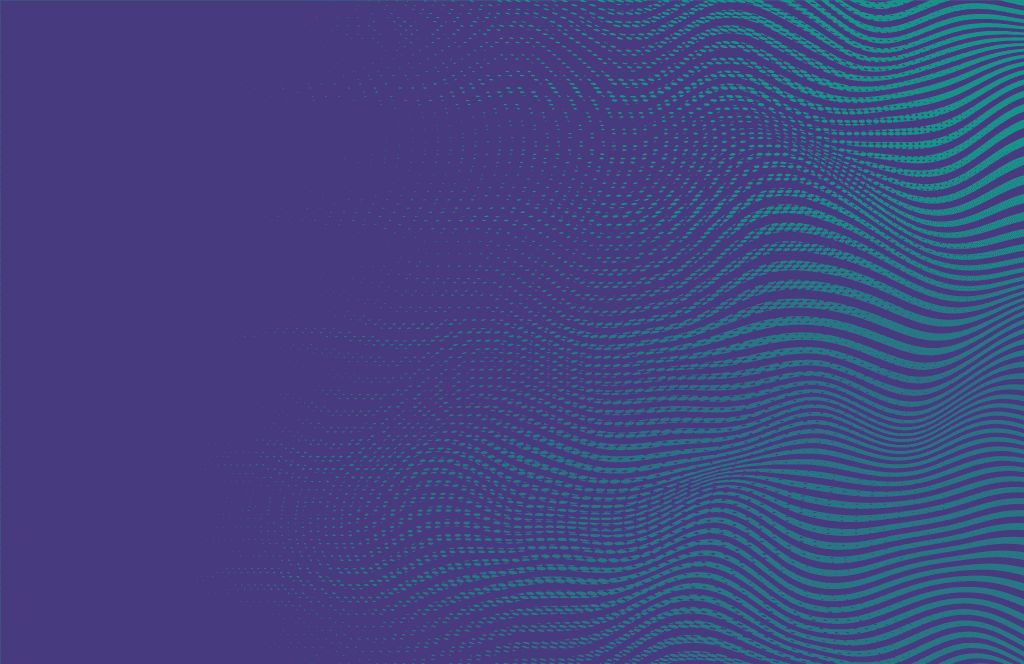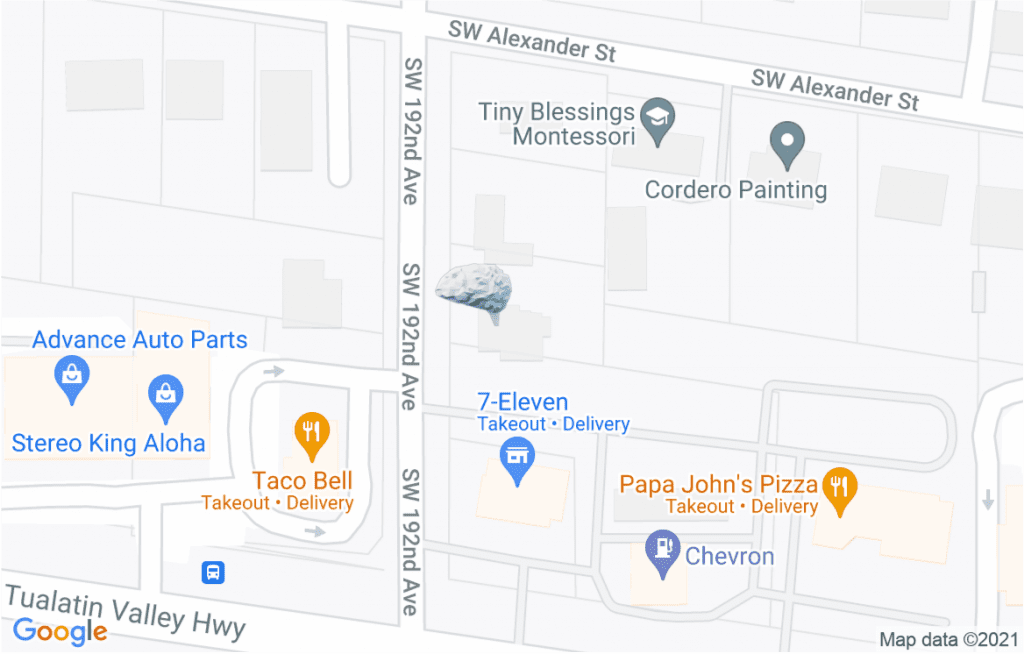
In 2017, Dr. Liana Hategan, a board-certified psychiatrist, opted to add NeuroStar® TMS therapy to her private practice. We have partnered with NeuroStar Advanced Therapy to bring Oregonians the gold standard in NeuroStar® TMS treatment. We are the only NeuroStar® Gold Circle Provider in the Portland area! Our results speak for themselves, with 92% of our patients having had a positive response to NeuroStar® TMS therapy, and 80% achieving full remission! This is in stark contrast to the less than 20% remission rate usually seen with patients on their 3rd trial of antidepressants. NeuroStar® TMS Oregon is clearly the best choice to treat your depression.
The team here at NeuroStar® TMS Oregon is dedicated to providing patients with a comprehensive approach to treating depression. Our streamlined registration system and responsive diagnosis procedure takes the stress of dealing with the insurance companies away from you, the patient. This allows us more time to focus on helping patients find treatments to feel better and connect them with resources available to help them stay that way. We currently offer NeuroStar® TMS Therapy at our Beaverton office, however, we are looking at adding it to our office in Silverton (near Salem), as well as possibly expanding to other areas around the Portland Metro Area, so please reach out to us if you are in one of those areas!
Dr. Liana Hategan offers NeuroStar® TMS services at her Beaverton location.
What is major depression?
Depression is a serious medical illness that lasts two weeks or more and interferes with a person’s ability to carry out daily tasks and enjoy activities that previously brought pleasure.
How prevalent is depression?
Depression is a serious illness. In the United States, depression affects approximately 14 million people, according to a national prevalence survey of more than 9,000 people age 18 or older.
Is depression a serious disease?
Yes. The United States National Institute of Mental Health maintains that, “Depression is characterized by a combination of symptoms that interfere with a person’s ability to work, sleep, study, eat, and enjoy once-pleasurable activities. Major depression is disabling and prevents a person from functioning normally.” Depression causes pain and suffering not only to those who have the disorder, but to those who care about them. Depression can be a lethal disease leading to more than 1 million deaths from suicide each year. Along with being a huge economic burden, depression is a leading cause of disease burden and disability around the world. Researchers estimate that by the year 2030, depression will be the leading cause of disease burden worldwide.
Is there a cure for depression?
There is no known cure for depression. However, with effective treatment, many patients can remain symptom free and can lead normal lives.
Are some people more likely to become depressed than others?
Yes, depression is known to be hereditary so depression may occur in some people who have a particular genetic makeup that makes them more likely to develop depression. However, the exact nature of these genetic characteristics is not known. Other factors may contribute to an individual’s likelihood of experiencing depression. Some of these risk factors include:
- Individuals suffering from certain medical illnesses such as stroke, heart attack, cancer, Parkinson’s disease, and hormonal disorders
- Individuals experiencing serious personal losses, difficult relationships, financial problems, or any stressful changes in life pattern
- Individuals taking certain medications that may increase their vulnerability to depression
What are the symptoms of depression?
According to the World Health Organization’s International Classification of Diseases, depression is diagnosed when an individual is experiencing a depressed mood, a loss of interest or enjoyment, and reduced energy leading to diminished activity. Other common depression symptoms include:
- Reduced concentration or attention
- Reduced self-esteem and self-confidence
- Ideas of guilt and unworthiness
- Bleak and pessimistic view of the future
- Disturbed sleep
- Diminished appetite
- Ideas of self-harm or suicide
If you feel you are experiencing any of these depression symptoms, contact your doctor and ask about your depression treatment options.
What are the current approved treatments for depression?
There are non-drug and drug therapies available to treat depression. Depression is often initially treated with psychotherapy (talk therapy) and antidepressant medication administered together. Although antidepressants can be effective for some patients, they do not work for everybody. Additionally, antidepressants often result in unwanted side effects.
Many patients do not receive adequate benefit from antidepressant medication and/or cannot tolerate the side effects caused by them. For these patients, alternative treatments that involve the use of a medical device are available. These treatments include transcranial magnetic stimulation (TMS), electroconvulsive therapy (ECT) and vagus nerve stimulation (VNS).
What is transcranial magnetic stimulation?
Transcranial magnetic stimulation (TMS) uses short pulses of a magnetic field to stimulate nerve cells in the area of the brain thought to control mood. The pulsed magnetic field may have a positive effect on the brain’s neurotransmitter levels.
What treatments are available for depression?
Both non-drug and drug therapies are available to treat depression. Depression is often treated first with psychotherapy (talk therapy) and antidepressant medication administered together. Although antidepressants can be effective for some patients, they do not work for everyone. Also, there can often be unwanted side effects from antidepressant drugs.
Antidepressant drugs
When first-line antidepressant drugs are not effective, other depression treatment options may be considered:
- Patients can be switched to a different type of antidepressant medication (such as a monoamine oxidase inhibitor (MAOI) or a tricyclic antidepressant (TCA)
- Patients may have another medication, such as lithium or thyroid supplement, added to their current antidepressant medication
- Patients may have an atypical antipsychotic medication added to their antidepressant medication
Adding more depression medications can result in additional unwanted side effects.
TMS Therapy for depression
For patients who do not receive adequate benefit from antidepressant medication and/or cannot tolerate the side effects caused by them, other treatments with a medical device are available.1 One of these treatments is transcranial magnetic stimulation (TMS). The 2010 Practice Guidelines for the Treatment of Patients with Major Depression cites TMS as an appropriate treatment option for patients who have not benefited from initial antidepressant medication.
TMS uses short pulses of a magnetic field to stimulate nerve cells in the area of the brain thought to control mood. The pulsed magnetic field may have a positive effect on the brain’s neurotransmitter levels. Treating depression with NeuroStar TMS Therapy® provides a breakthrough depression treatment for those who have not been satisfied with the results they have had with antidepressant drugs.



 Nos cabinets medicaux offrent des services en anglais, français, italien et roumain.
Nos cabinets medicaux offrent des services en anglais, français, italien et roumain. I nostri uffici offrono servizi in inglese, francese, italiano e rumeno.
I nostri uffici offrono servizi in inglese, francese, italiano e rumeno. Cabinetele noastre oferă servicii în engleză, franceză, italiană și română
Cabinetele noastre oferă servicii în engleză, franceză, italiană și română
